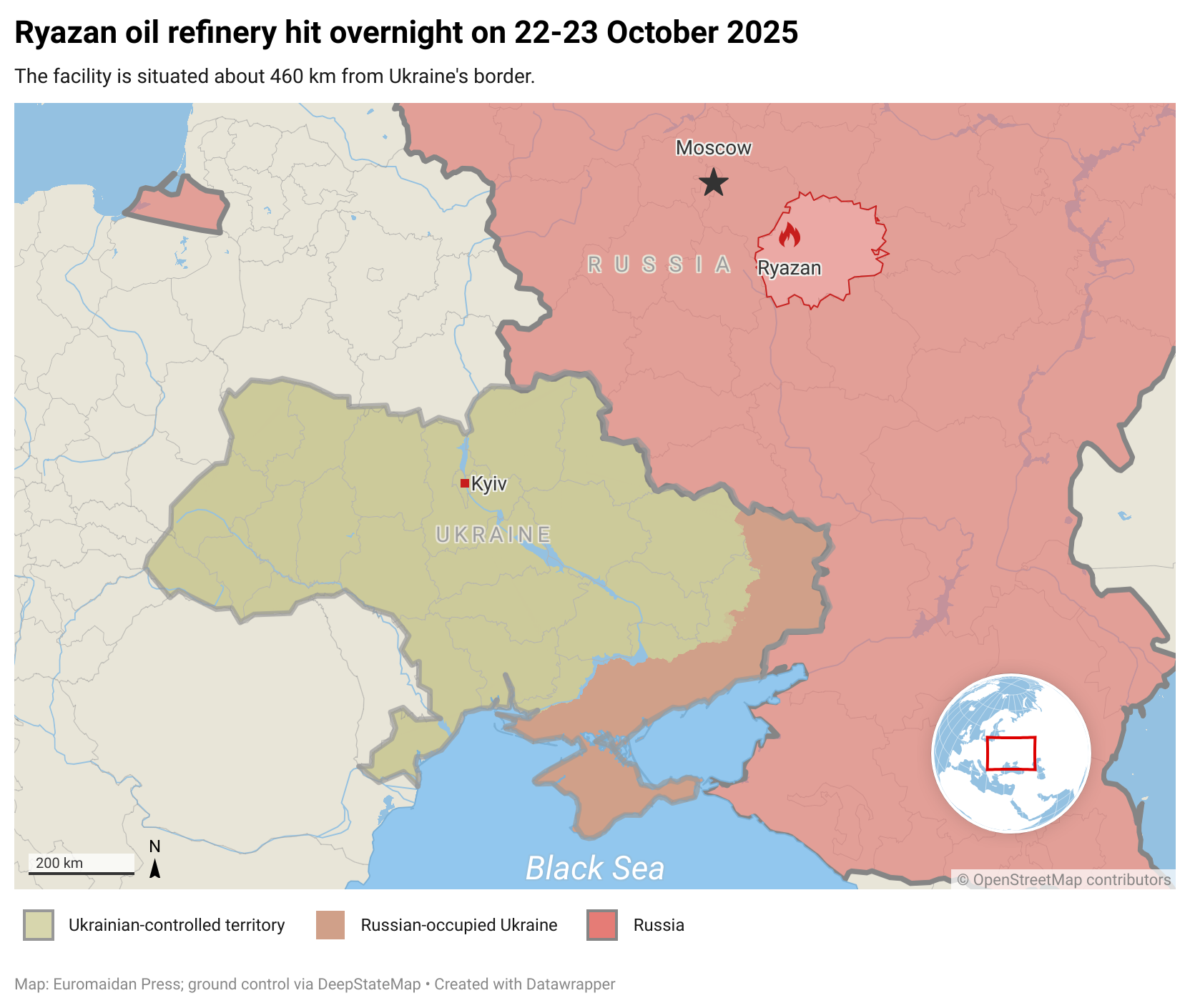Russia’s fourth-largest refinery in Ryazan halts core crude unit after drone-induced fire during latest attack, Reuters reports

Russia’s Ryazan refinery, the country’s fourth-largest oil processing plant, was forced to shut down a critical crude unit after a fire broke out following a drone strike. Reuters reports, citing industry sources, that the AVT-4 (also known as CDU-4) crude distillation unit was urgently halted on 22 October, after it caught fire as a result of the attack.
Ukraine’s latest drone attack on the Ryazan oil refinery took place overnight on 22–23 October. It was at least the sixth strike on the facility this year. The refinery had also temporarily halted operations in January and February following earlier attacks.
Key unit offline after fire triggered by drone
Reuters says the AVT-4 unit, which processes 4 million metric tons of crude annually—roughly 80,000 barrels per day—was taken offline after it caught fire on 22 October. Two Russian industry sources told Reuters the shutdown followed the fire damage caused by the drone strike. The unit accounts for about one-quarter of the Ryazan refinery’s overall capacity. The refinery is located southeast of Moscow.
Ukraine’s General Staff confirmed on 23 October that its forces had struck the Ryazan refinery.
Reuters reports that several adjacent units were also shut down after the fire, including a reformer, a vacuum gasoil hydrotreater, and a catalytic cracker. While the plant remains operational, sources said it is now processing oil at a reduced volume.
Fuel output disruption across multiple units
The Ryazan refinery, owned by the Russian state-controlled oil company Rosneft, processed 13.1 million metric tons of crude in 2024. That year, it produced 2.3 million tons of gasoline, 3.4 million tons of diesel, and 4.2 million tons of fuel oil.
The shutdown of AVT-4 and other systems comes as several Russian regions are already experiencing fuel shortages, according to local authorities, who have previously sometimes linked those shortages to Ukrainian attacks on energy infrastructure.

